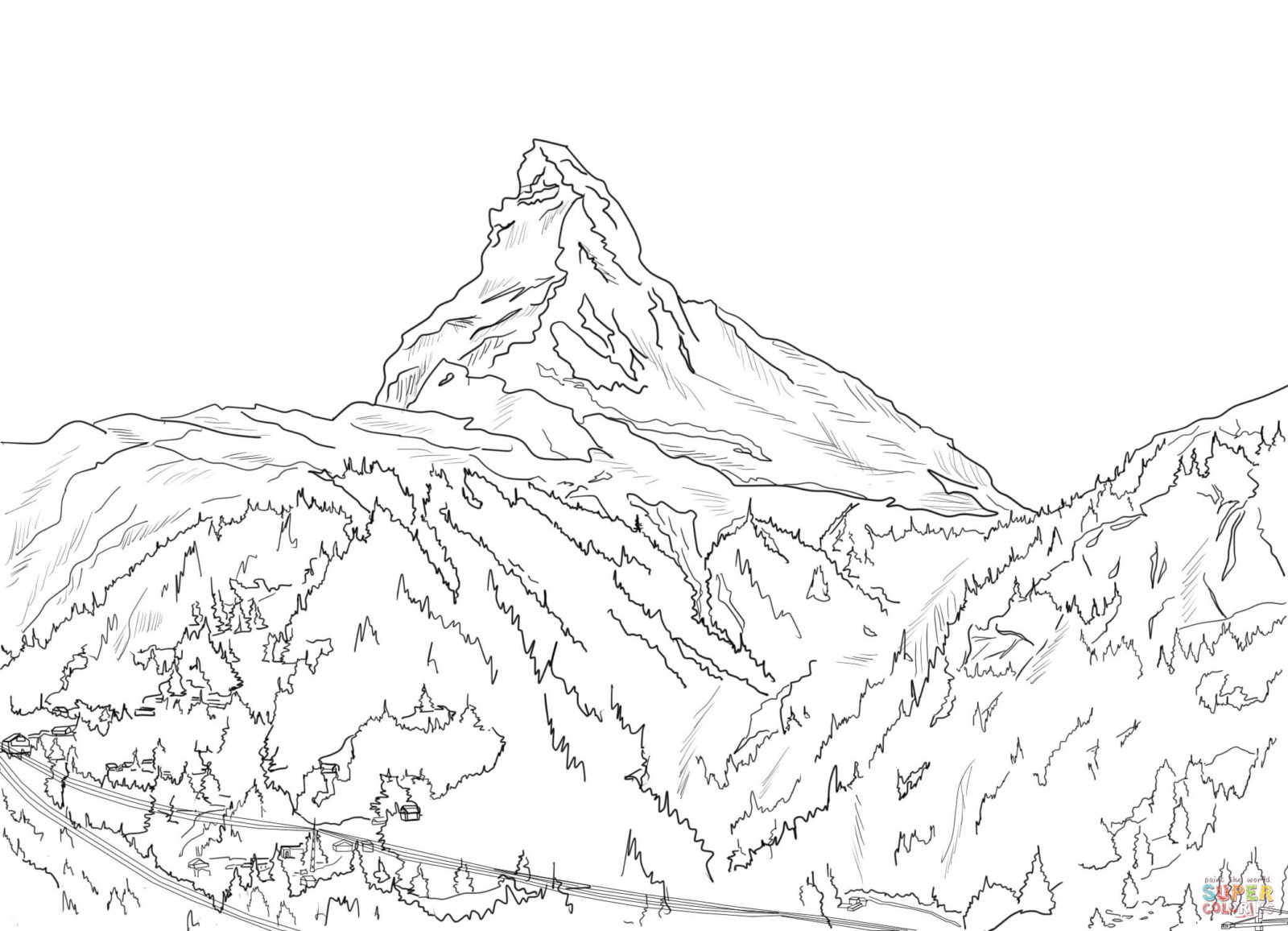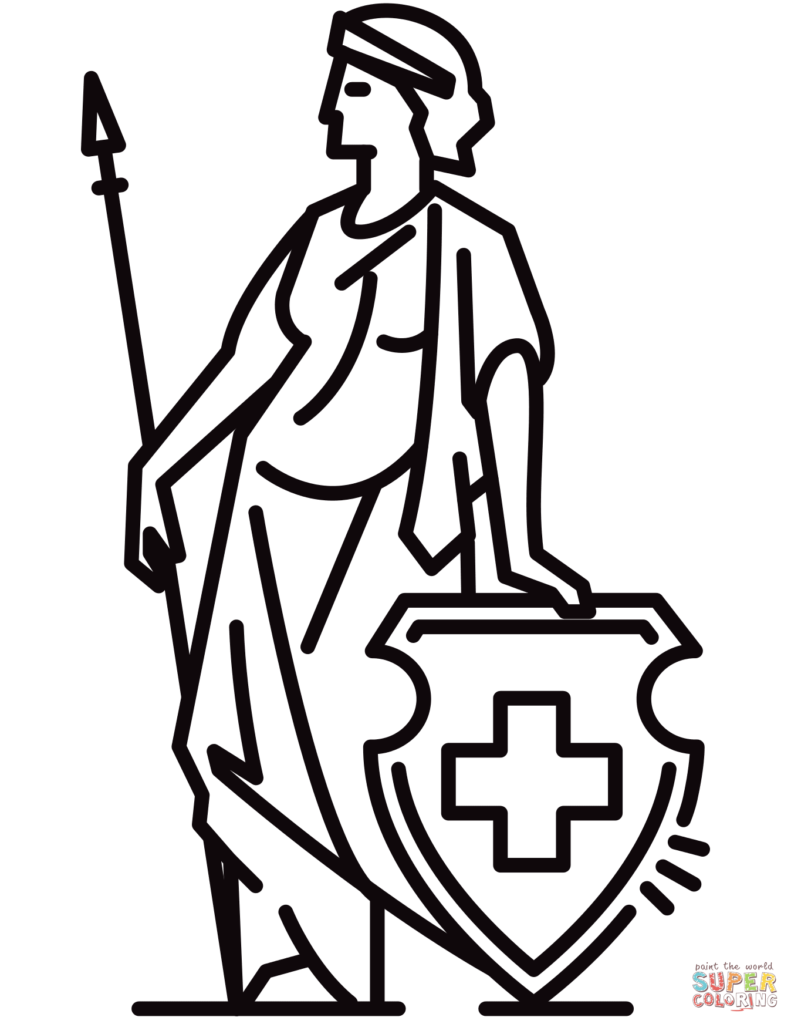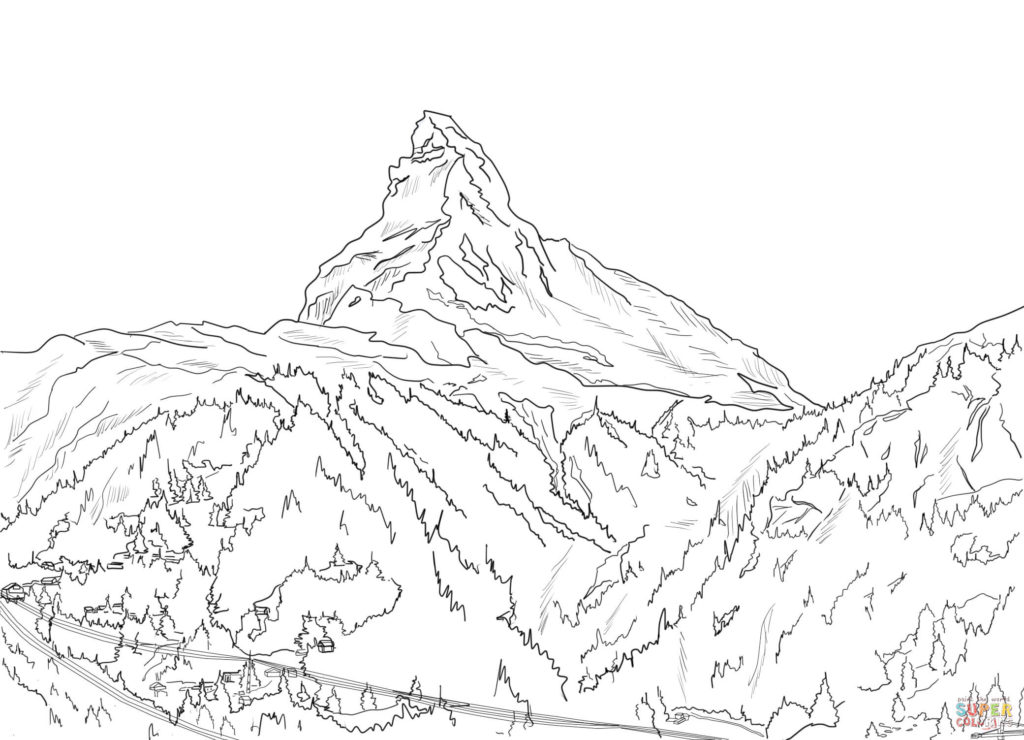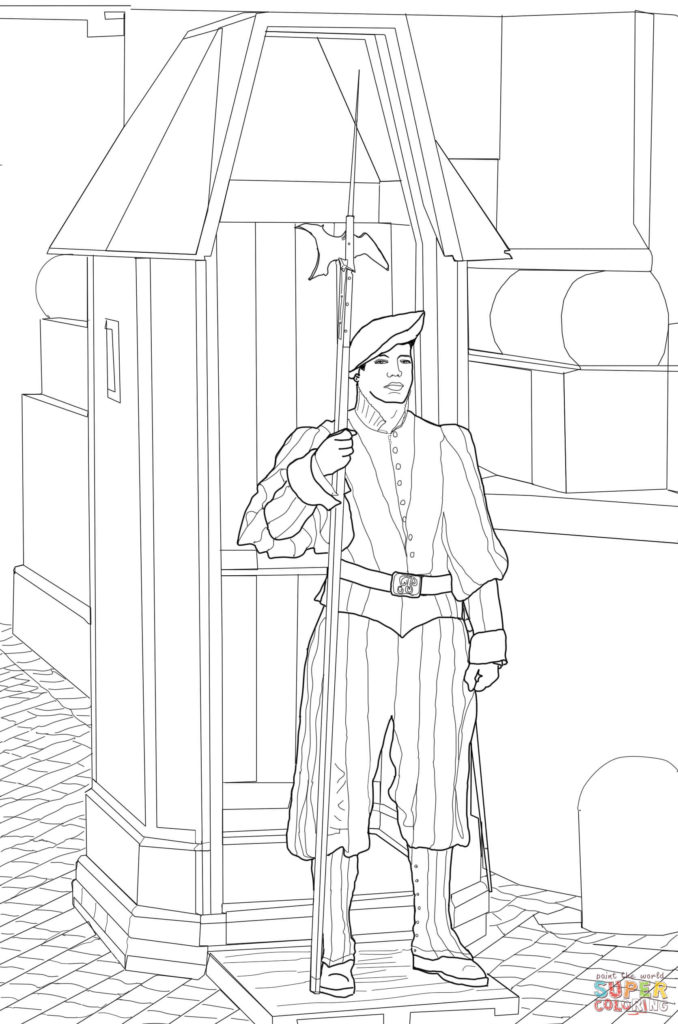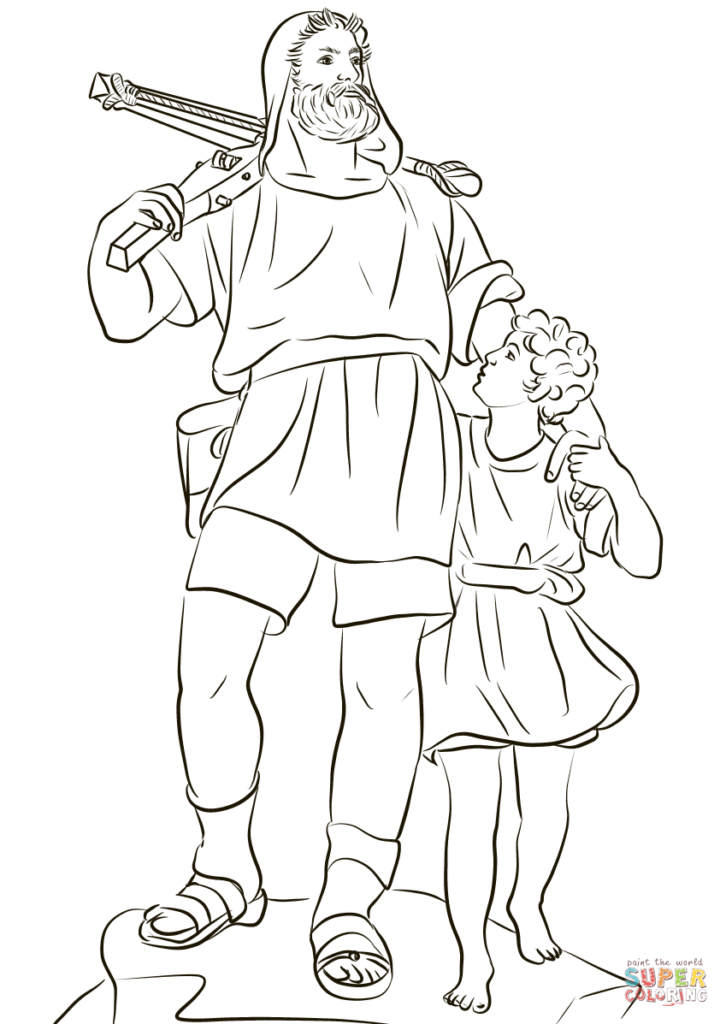Switzerland is one of the world’s wealthiest countries. The Swiss are well known for their watches and clocks. Rick Steves says, “Little, mountainous, efficient Switzerland is one of Europe’s most appealing destinations. Wedged neatly between Germany, Austria, France, and Italy, Switzerland melds the best of all worlds — and adds a healthy dose of chocolate, cowbells, and cable cars. Fiercely independent and decidedly high-tech, the Swiss stubbornly hold on to their quaint traditions, too.”
There is not a single official language in Switzerland. People speak one of several languages, including Swiss German, French, and Italian. German is by far the most widely spoken language in Switzerland
Coloring pages:
- Helvetia is the female national personification of Switzerland
- Matterhorn : The most famous peak is the Matterhorn which is 14,692 feet (4,478 meters) tall, but the highest peak is Dufourspitze at 15,203 feet (4,634 meters).The Matterhorn is a pyramid shaped colossus of a mountain is said to be the most-photographed mountain in the world. Even today the ascent of the Matterhorn is very challenging and can only be achieved by expert mountaineers with excellent equipment and a competent guide.
- Swiss Guard (see below)
- William Tell (see below)
Swiss Guards:

These guardsmen began serving the Papal States in the late 14th and 15th centuries. The guards, who are independent of the Swiss armed forces, are employed by the Roman Catholic Church under the leadership of the pope. The guards normally wear blue doublets and blue berets, but on ceremonial occasions they don the colourful Renaissance-era uniforms for which they are famous. They are among the oldest uniforms in continuous use, legend says designed by Michelangelo. Swiss mercenaries were long renowned as the best soldiers in the world—the ancient Roman scholar Tacitus stated, “The Helvetians are a people of warriors, famous for the valour of their soldiers”—and they served the ruling powers of many European countries. Earned a reputation for self-sacrifice and bravery.
William Tell is a folk hero of Switzerland.

Story of William Tell
The people of Switzerland were not always free and happy as they are today. Many years ago a proud tyrant, whose name was Gessler, ruled over them, and made their lot a bitter one indeed.
One day this tyrant set up a tall pole in the public square, and put his own cap on the top of it; and then he gave orders that every man who came into the town should bow down before it. But there was one man, named William Tell, who would not do this. He stood up straight with folded arms, and laughed at the swinging cap. He would not even bow down to Gessler himself.
When Gessler heard of this, he was very angry. He was afraid that other men would disobey, and that soon the whole country would rebel against him. So he made up his mind to punish the bold man.
According to legend, William Tell’s home was among the mountains, and he was a famous hunter. No one in all the land could shoot with bow and arrow so well as he.
Gessler knew that William Tell was an expert marksman with the crossbow, and so he thought of a cruel plan to make the hunter’s own skill bring him to grief. He ordered that Tell’s little boy should be made to stand up in the public square with an apple on his head; and then he challenged Tell shoot the apple with one of his arrows.
William Tell begged the tyrant not to have him make this test of his skill. What if the boy should move? What if the bowman’s hand should tremble? What if the arrow should not carry true? “Will you make me kill my boy?” he said. “Say no more,” said Gessler. “You must hit the apple with your one arrow. If you fail, my soldiers shall kill the boy before your eyes.”

Then, without another word, Tell fitted the arrow to his bow. He took aim, and let it fly. The boy stood firm and still. He was not afraid, for he had all faith in his father’s skill. The arrow whistled through the air. It struck the apple fairly in the center, and carried it away. The people who saw it shouted with joy.
As Tell was turning away from the place, an arrow which he had hidden under his coat dropped to the ground. “Fellow!” cried Gessler, “what mean you with this second arrow?” “Tyrant!” was Tell’s proud answer, “this arrow was for your heart if I had hurt my child.”
And there is an old story, that, not long after this, Tell did shoot the tyrant with one of his arrows; and thus he set his country free.
TIP: You never have to worry about tipping in Switzerland, as tips are included in the price. You can, however, add a smile to the face of someone who has provided good service by rounding up to the nearest franc or round figure.
